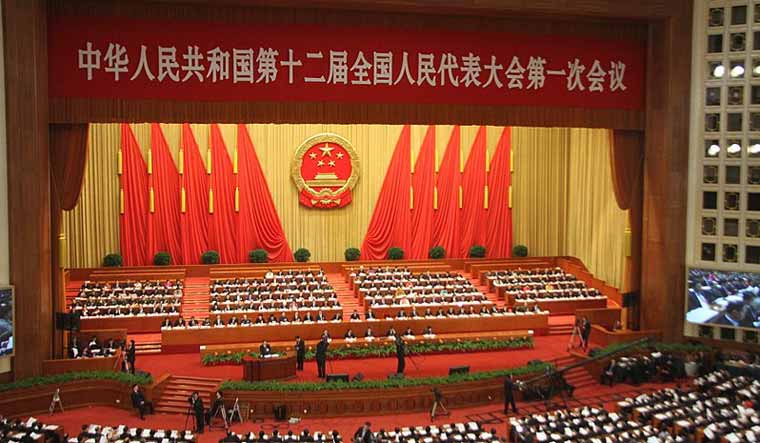Beijing is expected to introduce a draft resolution that will allow the country’s national legislature to propose a controversial ‘anti-sedition’ law that would apply to Hong Kong, the South China Morning Post reported.
On Friday, the National People’s Congress is expected to deliberate on a bill that could ban “all seditious activities”, one that has been opposed by pro-democracy Hong Kong protesters as far back as 2003—dubbed a ‘national security’ law.
The item was mentioned on the NPC’s agenda under the title ‘Establishing and Improving the Legal System and Enforcement Mechanism of Hong Kong’.
The law is expected to outlaw all seditious activities and bring Hong Kong under a national security law. Under Article 23 of Hong Kong Basic Law, the Hong Kong Special Adminsitrative Region is allowed to “enact laws on its own to prohibit any act of treason, secession, sedition, subversion against the Central People's Government, or theft of state secrets, to prohibit foreign political organizations or bodies from conducting political activities in the Region, and to prohibit political organizations or bodies of the Region from establishing ties with foreign political organizations or bodies.”
Pro-democracy lawmaker Dennis Kwok told Reuters, “If this move takes place, 'one country, two systems' will be officially erased. This is the end of Hong Kong."
Activist Joshua Wong said the move would scrap the promise of “One country, two systems”.
“On the eve of HK's Tiananmen massacre vigil, Beijing is now scrapping its promise of #1country2systems by circumventing HK’s legislature and directly imposing the most controversial national security law #article23 upon Hong Kong,” Wong tweeted.
2/ Although the law is highly contentious in #Hongkong, and widespread backlash broke out when #HKgov introduced the law in 2003, Beijing this time deliberately chooses to ram through this unpopular law by completely ignoring the will of #Hongkongers.
— Joshua Wong 黃之鋒 😷 (@joshuawongcf) May 21, 2020
In 2003, an attempt was made to implement this with the National Security (legislative Provisions) Bill 2003—which led to the largest protests seen in Hong Kong at the time, only surpassed in 2019 by the anti-extradition bill protesters.
Among other things, the 2003 bill would have provided for “the power of entry, search, seizure, detention and removal by the police without warrant for the investigation of treason, subversion, secession, sedition and handling seditious publication.”
Curiously, the time of its introduction also coincided with an epidemic—the 2003 SARS outbreak. Attention was drawn away from the bill due to the virus, prompting pro-democracy protesters to intensify their street action. Up to 500,000 protesters are estimated to have taken to the streets at the time. The Hong Kong government eventually opted to postpone the bill until it could get public support.
Now, however, the move by China to push its discussion to the national legislature removes Hong Kong’s legislature from the equation. After the NPC debates the bill, however, the Hong Kong Legislative Council will head for elections in September.
The SCMP reported that a vote on the draft bill is expected by the end of the NPC session, possibly on May 28.
The move comes as protests in Hong Kong resumed in part after being put on the backburner following the COVID-19 pandemic.


